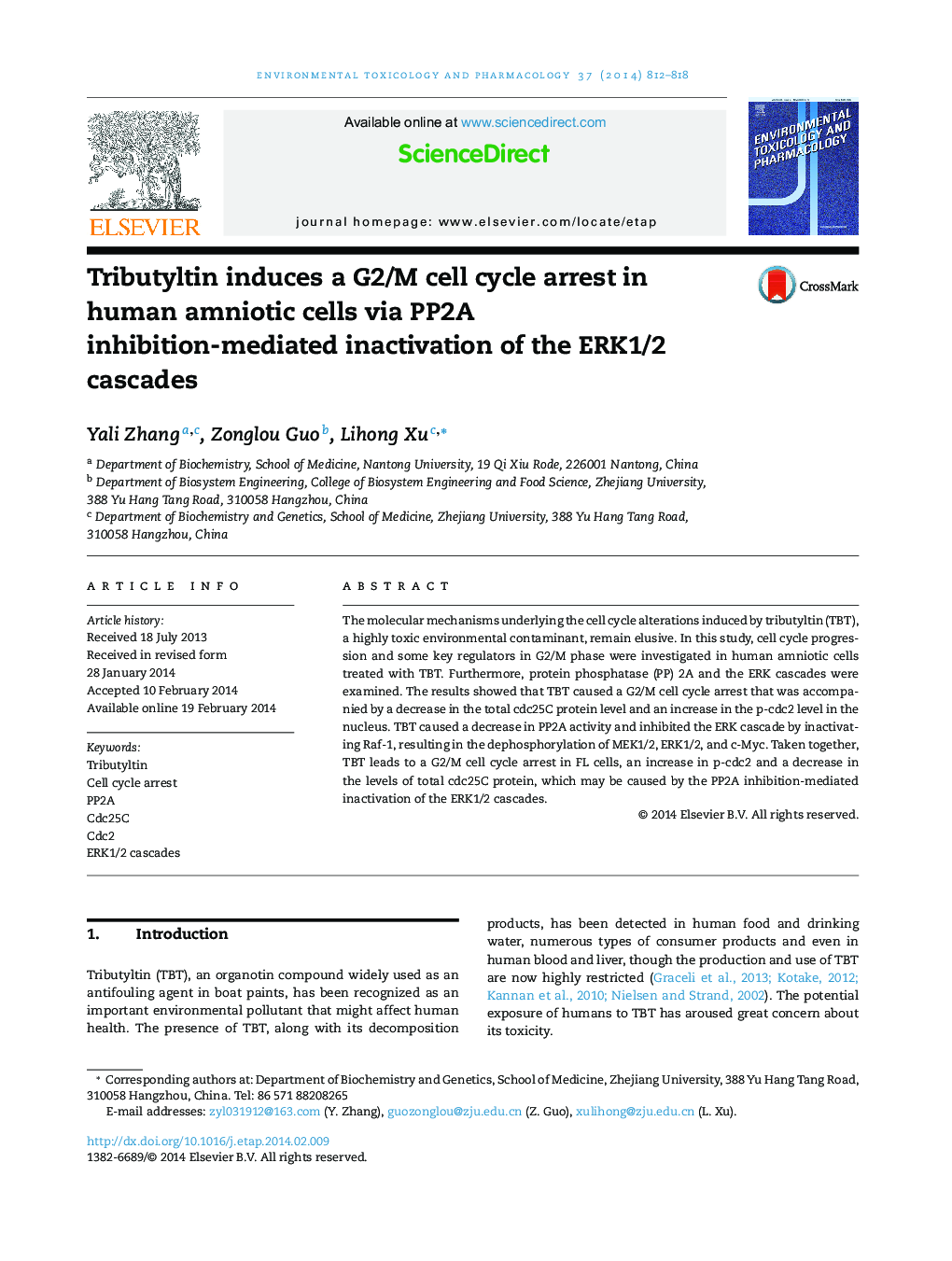| Article ID | Journal | Published Year | Pages | File Type |
|---|---|---|---|---|
| 2583019 | Environmental Toxicology and Pharmacology | 2014 | 7 Pages |
•TBT induces G2/M arrest in FL cells.•Decease of cdc25C and increase in the p-cdc2 were involved in G2/M arrest.•Inhibition of ERK cascades may result in the reduction in cdc25C expression.•PP2A inhibition may be responsible for the inactivation of ERK cascades.
The molecular mechanisms underlying the cell cycle alterations induced by tributyltin (TBT), a highly toxic environmental contaminant, remain elusive. In this study, cell cycle progression and some key regulators in G2/M phase were investigated in human amniotic cells treated with TBT. Furthermore, protein phosphatase (PP) 2A and the ERK cascades were examined. The results showed that TBT caused a G2/M cell cycle arrest that was accompanied by a decrease in the total cdc25C protein level and an increase in the p-cdc2 level in the nucleus. TBT caused a decrease in PP2A activity and inhibited the ERK cascade by inactivating Raf-1, resulting in the dephosphorylation of MEK1/2, ERK1/2, and c-Myc. Taken together, TBT leads to a G2/M cell cycle arrest in FL cells, an increase in p-cdc2 and a decrease in the levels of total cdc25C protein, which may be caused by the PP2A inhibition-mediated inactivation of the ERK1/2 cascades.
